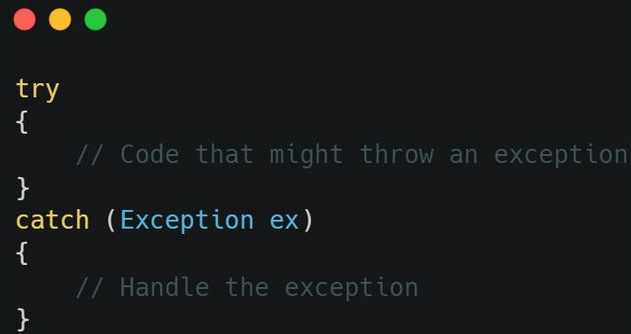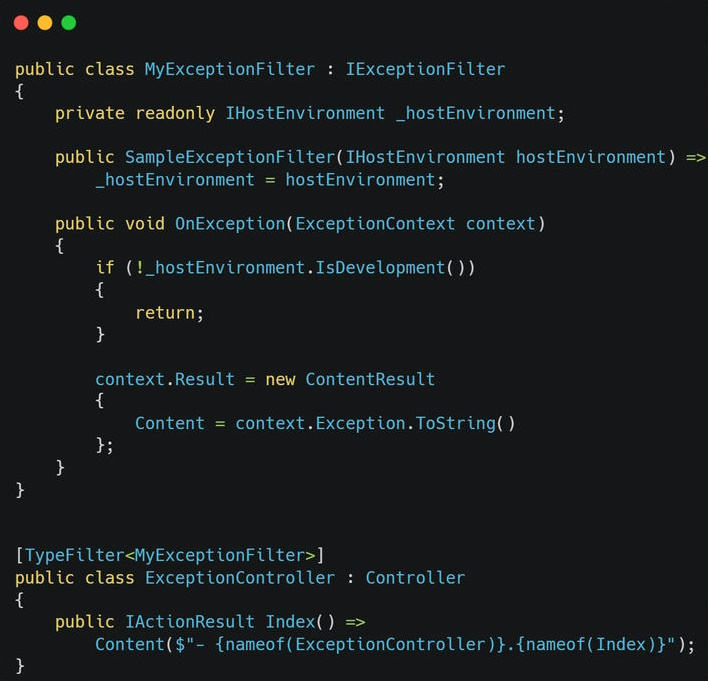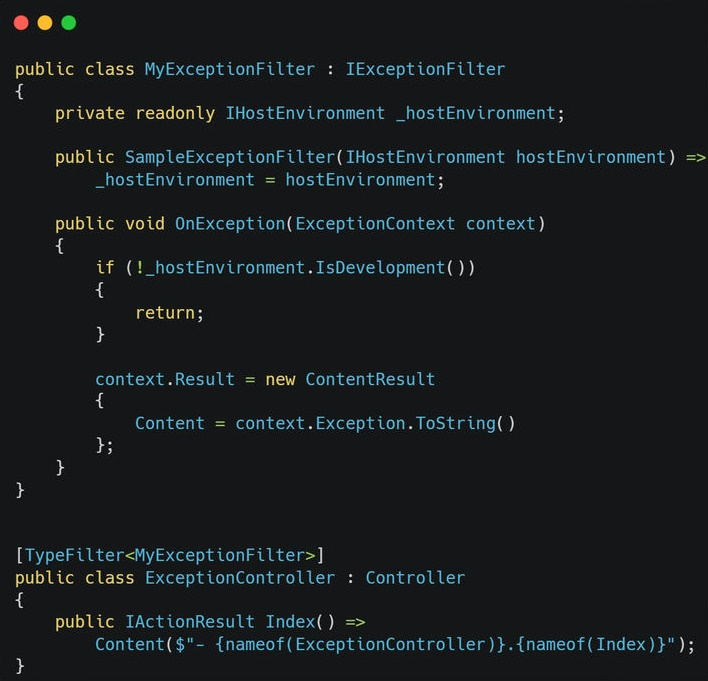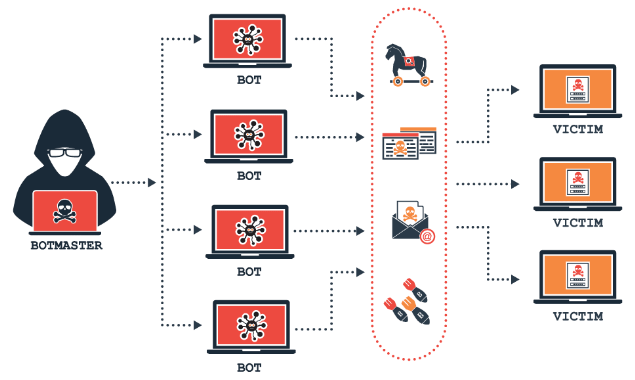An extraordinary circumstance is one that throws off a program’s typical flow, such as a runtime error or an unforeseen occurrence. Under such circumstances, it becomes imperative to inform users of the application’s status and send them relevant messages. There are multiple ways to manage exceptions in a system with ASP.NET Core. By systematically identifying, handling, and recovering from problems, these procedures help developers maintain the stability of their product and improve user experience overall.
Various Methods For Managing Exceptions In ASP.NET Core
Firstly, Try-Catch Blocks
Here’s one way to put code within try-catch blocks so you can handle exceptions at a specific place in your code and catch them.
A sample of a try-catch block is shown here.

Code dispersal can result from writing try-catch blocks all over the code to manage exceptions. This makes the exception-handling logic more difficult to maintain and comprehend because it is dispersed over different parts of the codebase.
2. Filters for Exceptions

Exception Handling Attributes are applied at the controller or action level, providing handling specific to that particular part of the application. However, this can result in a lack of global coverage.
3. Global Exceptions Handling and Exception Middlewares
- .NET 8 introduces an IExceptionHandler a new interface for handling exceptions. It allows us to implement different exception handlers for different use cases in our system in a more elegant way.
- It overcomes the two above problems that we discussed and helps us to globally manage exceptions.
- IExceptionHandler, this interface has only one method called TryHandleAsync and this method tries to find the error inside the asp.net core HTTP pipeline.
- TryHandleAsync method returns true when the exception is successfully handled and returns false Indicating that the handler couldn’t or didn’t handle the exception.
Exception filters can be applied globally or to specific actions or controllers, allowing for more granular control over exception handling.
Here is an example of an Exception filter.

.NET 8 allows us to register our global handler by using AddExceptionHandler() in a dependency injection container and UseExceptionHandler() to request the register exception handlers.

You can register more than one exception handler in the same way, depending on the use cases or specific HTTP faults for which they are intended.
Conclusion
It’s great practice to handle exceptions globally since it increases control and readability of our code base and is simple to maintain in larger projects.
Note: When you use nested structures, throwing exceptions and creating exceptions for extraordinary circumstances might be very costly. Exceptions for unanticipated errors shouldn’t be used to circumstances that are predictable or manageable under standard control procedures.
Instead than making plans for every improbable possibility, concentrate on the anticipated.
Best and Most Recommended ASP.NET Core 9.0 Hosting
Fortunately, there are a number of dependable and recommended web hosts available that can help you gain control of your website’s performance and improve your ASP.NET Core 9.0 web ranking. HostForLIFEASP.NET is highly recommended. In Europe, HostForLIFEASP.NET is the most popular option for first-time web hosts searching for an affordable plan.
Their standard price begins at only € 3.49 per month. Customers are permitted to choose quarterly and annual plans based on their preferences. HostForLIFEASP.NET guarantees “No Hidden Fees” and an industry-leading ’30 Days Cash Back’ policy. Customers who terminate their service within the first thirty days are eligible for a full refund.
By providing reseller hosting accounts, HostForLIFEASP.NET also gives its consumers the chance to generate income. You can purchase their reseller hosting account, host an unlimited number of websites on it, and even sell some of your hosting space to others. This is one of the most effective methods for making money online. They will take care of all your customers’ hosting needs, so you do not need to fret about hosting-related matters.








